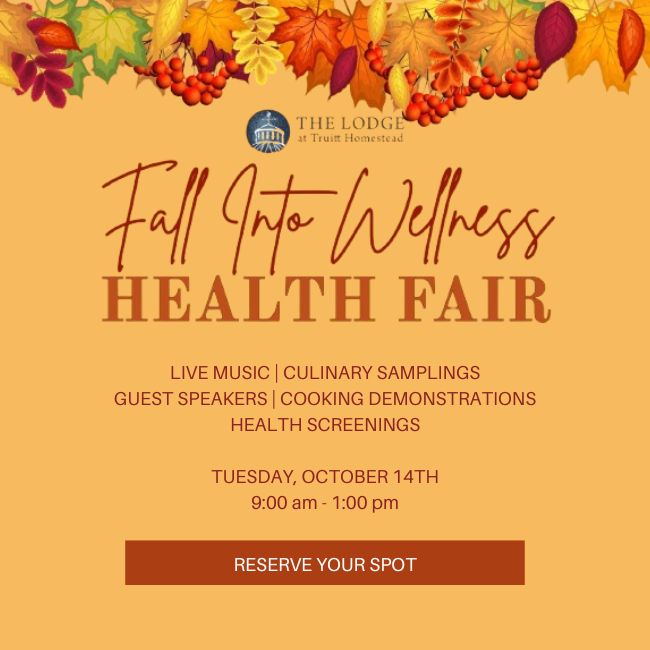As we grow older, bone health becomes increasingly important. Strong bones support our mobility, protect our organs, and ensure a high quality of life.
Yet, as we age, we naturally lose bone density, which can lead to conditions such as osteoporosis and increased risk of fractures.
This makes it important to understand how to maintain bone strength through the years. Here are five strategies to try:
- Maintain a healthy weight
- Eat a balanced diet
- Move your body
- Avoid smoking & limit alcohol consumption
- Bone health screenings
1. Maintain a Healthy Weight
Maintaining your body at a healthy weight is of utmost importance for ensuring bone health. Carrying excessive weight can lead to additional stress on your bones, significantly increasing the risk of fractures and other bone-related issues.
On the flip side, being underweight can result in decreased bone density, making bones more fragile and susceptible to breaks. It’s important to find a healthy balance to support your skeletal system.
2. Eat a Balanced Diet
Your diet is an important factor in ensuring your bones remain healthy and strong throughout your life. Indulging in foods that are rich in calcium and vitamin D plays a pivotal role in maintaining the strength and durability of your bones.
Calcium is the cornerstone of a robust skeletal structure, providing the necessary support for your bones and teeth. On the other hand, vitamin D significantly enhances the absorption of calcium in your body, facilitating bone growth and repair.
Incorporating dairy products such as milk, cheese, and yogurt into your daily diet can supply a significant amount of calcium.
Similarly, leafy green vegetables like spinach, kale, and broccoli are not only rich in calcium but also provide a host of other beneficial nutrients.
For a well-rounded approach to bone health, try to include foods that are rich in magnesium and vitamin K in your diet.
Magnesium plays a crucial role in converting vitamin D into its active form, which aids in calcium absorption, while vitamin K supports bone mineralization and reduces the risk of bone fractures.
Nuts, seeds, and whole grains are excellent sources of magnesium, and foods like green leafy vegetables are also high in vitamin K.
By diversifying your diet to include these nutrient-dense foods, you can ensure that your bones receive all the nourishment they need to remain strong and healthy as you age.

3. Move Your Body
Physical activity benefits people across all age groups. However, its importance becomes even more pronounced when it comes to strengthening bones.
Activities like walking, jogging, and climbing stairs, present a unique challenge to our body. These activities compel us to work against the natural force of gravity, which, in turn, acts as a stimulus for bone cells, encouraging them to strengthen.
Try Low-Impact Exercise
If high-impact exercises are challenging or unsuitable for you, try low-impact activities like:
- Swimming
- Cycling
- Yoga
- Tai Chi
They offer an excellent alternative that can be equally beneficial for your bone health. These forms of exercise can significantly increase bone density, particularly in crucial areas such as the hip and spine.
This is vital for overall bone health and can help prevent osteoporosis. Low-impact exercises are not only easier on your joints but also play a role in improving balance and coordination.
This improvement in physical stability is essential, especially as we age because it significantly reduces the risk of falls and fractures.
By incorporating these low-impact exercises into your routine, you can enjoy a range of health benefits while minimizing the strain on your body.
4. Avoid Smoking & Limit Alcohol Consumption
Smoking and the excessive consumption of alcohol have long been identified as major factors that negatively affect bone health, leading to weakened bone structures and a significantly increased risk of fractures.
The harmful chemicals in cigarette smoke can interfere with the body’s ability to absorb calcium, a crucial mineral for bone strength, while excessive alcohol consumption can disrupt the balance of vitamins and minerals necessary for bone maintenance and renewal.
Quitting smoking and reducing alcohol intake to moderate levels are not just advisable but crucial steps toward safeguarding your bone health.
5. Bone Health Screenings
Regular bone density screenings can help in identifying early indications of bone loss, providing an opportunity for early intervention to prevent further deterioration.
These screenings are highly recommended for women over the age of 65 and men over the age of 70, as they are at a higher risk for developing osteoporosis.
People with risk factors for osteoporosis, regardless of their age, should also consider undergoing these tests.
By detecting bone loss early, seniors have a better chance of managing their bone health and taking proactive steps to strengthen their bones, potentially preventing osteoporosis or lessening its severity.
Why Bone Health Matters
Bones are the framework of our body, and their health is crucial for leading an active and independent life, especially as we age.
By implementing these tips, seniors and their caregivers can work towards maintaining bone density and strength. Remember, it’s never too late to start focusing on your bone health.Contact us if you’re interested in learning more about activities at The Lodge at Truitt Homestead that can help you keep active and keep your bones strong as you age.





